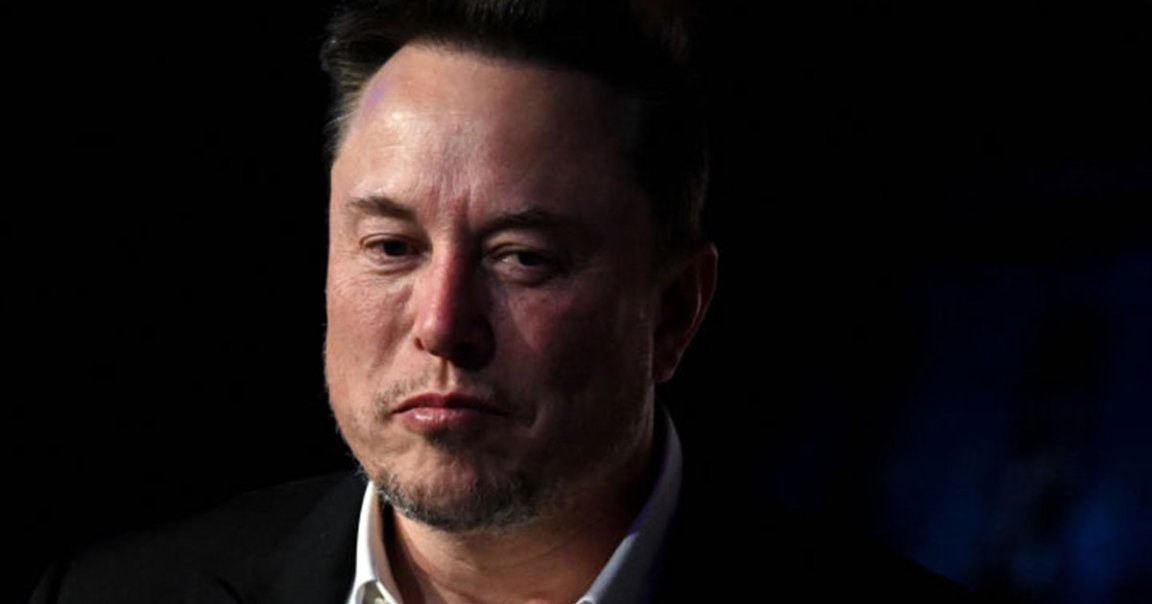
During his tense interview with multi-hyphenate billionaire Elon Musk, former CNN anchor Don Lemon didn’t hold back from lighting a fire under the second-richest man in the world.
But instead of giving coherent answers, Musk appeared defensive and increasingly distressed at being held accountable.
“You are upsetting me, because the way you are phrasing the question is not cogent,” Musk shot back, clearly enraged by Lemon’s probing.
The journalist didn’t beat around the bush, asking Musk why he allowed X-formerly-Twitter to tank under his chaotic leadership, with advertisers running for the hills while hate speech and conspiracy theories flourished on the platform.
In a fumbling answer, Musk seemed to argue that content moderation on X amounted to censorship, a common talking point among him and his increasingly far-right supporters.
“Moderation is a propaganda word for censorship,” Musk said.
Of course, remember that Musk has made plenty of moderation decisions at X, from re-banning Kanye West to suspending the accounts of journalists who’d written critically about his companies.
The interview demonstrates just how much Musk increasingly seems to struggle to articulate his greater vision for his many companies. While other far more eloquent executives would have parried or at least ignored Lemon’s provocative jabs, Musk’s inability to counter — let alone defend his controversial business practices — is on full display.
Lemon clearly hit a nerve by turning the attention to X’s financial woes. With no semblance of concern for brand safety, advertisers have left X in droves, leaving a deep hole in the already struggling company.
Meanwhile, Musk and CEO Linda Yaccarino have attempted to act like nothing is wrong.
“First of all, almost all of our advertisers are coming back to the platform,” Musk told Lemon. That’s despite plenty of evidence to the contrary, with some big name tech giants including Apple, Google, and Amazon announcing in November they had paused advertising after Musk endorsed an antisemitic post.
“I feel very optimistic about the future of the platform,” Musk told Lemon in the interview.
Meanwhile, in reality, Fidelity estimates the platform has lost about 70 percent of its value since Musk’s $44 billion takeover.
Musk’s regression into conspiracy-fueled paranoia and bigotry became particularly apparent in a posting spree on X following the interview, in which the mercurial CEO agreed with unhinged, Trumpian claims of “fake news” being the “enemy of the people,” and that the “woke mind virus” is out to destroy America.
Was the avalanche of X activity a defense mechanism against being held accountable? Judging by the way Lemon’s questioning appears to clash with Musk’s increasingly closed-off worldview, it’s certainly a possibility.
Clearly, very little love has been lost between the two, with Musk resorting to taking childish potshots at the journalist, calling him a “pompous fool who spouts nonsense.”
Beyond the baffling video and the CEO’s frustrations, there’s plenty of evidence to suggest that Musk has become radicalized by his followers, which include conservative pundits and right-wing nutjobs. His acquisition of Twitter has allowed him to turn the platform into a walled garden that echoes his own sentiments back at him almost verbatim.
His conversation with Lemon, however, demonstrates just how easily these walls can come down, crumbling at even the slightest bit of scrutiny.
To Musk, X is the “number one source of news in the world,” as he told Lemon right off the bat during the interview. “There’s nothing even close for real-time news.”
But getting high off of your own supply, particularly for a man who is known to surround himself with sycophants, can be a dangerous game.
“The drug that’s hurting Elon Musk is all his enablers, who suck up to him,” Silicon Valley chronicler Kara Swisher recently told The Guardian. “That’ll kill you.”
More on the interview: Don Lemon Says Elon Musk Is the Most Delicate Snowflake He’s Ever Interviewed